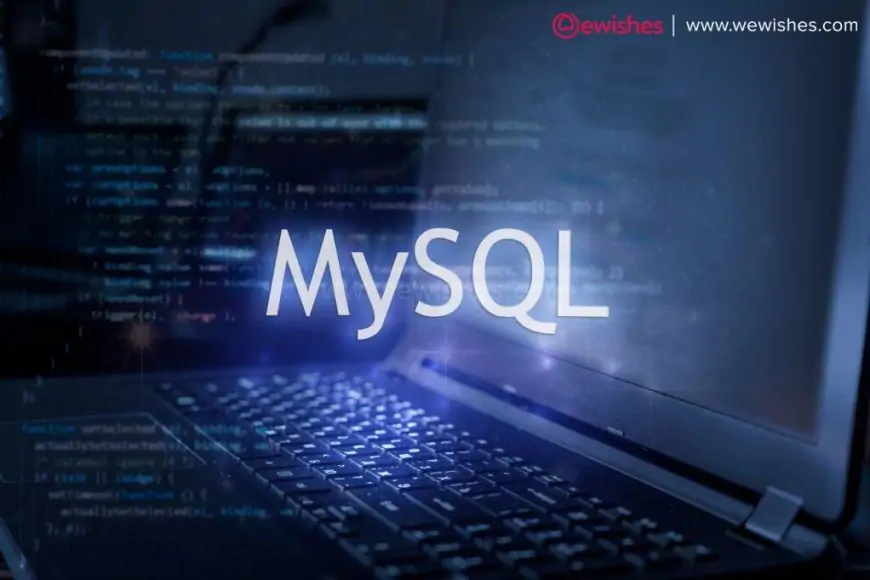Most companies across all business sectors utilize databases to store, organize, access, and safeguard their data. Knowing about MySQL and SQL is crucial if you want a technological job that involves databases. You may successfully employ them in a variety of applications and computer platforms by understanding how they are unique and how they work together.
In the field of data management, SQL and MySQL are reasonably well-known and regularly used. Even though they both use the word "SQL," they are significantly dissimilar from one another.
This article will provide you with a thorough explanation of the differences between SQL and MySQL and how you might use them in your day-to-day operations.
What is a Database?
A database is a compilation of all the information that is electronically saved and arranged in a software system. It is a technology that enables us to store any kind of data in vast quantities for simple access and application.
There are many different database formats that can be used for different purposes. For example, centralized databases can be used to handle all of an organization's information in one location, while cloud databases might have their data stored on a server and made available online.
What is SQL?
SQL language is used to manage databases; it supports operations like creating and deleting databases as well as fetching and editing data rows.
Structured Query Language, or SQL for short, is a type of computer language used to store, access, and retrieve data from relational databases.
For interacting with relational database systems, SQL is the preferred language. All Relational Database Management Systems (RDMS), including MS Access, MySQL, Sybase, Oracle, Informix, Postgres, and SQL Server, employ SQL as their Standard Database Language.
Challenges of SQL
Now that you have a solid understanding of SQL, it's critical to recognize some of the difficulties that you can run into when using it. The difficulties using SQL are:
- The same code can be rewritten in many places using the declarative nature of SQL.
- It supports index implementation in an ineffective manner and, occasionally, can lead to memory problems.
- Poorly constructed queries, a lot of compilations and recompilations, and a lot of use of temporary tables can all contribute to excessive CPU utilization.
What is MySQL?
MySQL, an open-source RDBMS owned by Oracle, uses SQL commands to carry out specific SQL operations or functions. Major operating systems, including Windows, UNIX, Linux, and macOS X are supported by the C and C++ code. Both servers and desktop computers can have it installed.
Databases may be accessed by several users thanks to MySQL, which allows customization of the source code to suit requirements. It offers an effortless approach to launching a low-memory disc or CPU database and is scalable, quick, and trustworthy. One of the fundamental parts of the open-source web-service stack LAMP (Linux, Apache, MySQL, and PHP) is.
Challenges of MySQL
Despite being one of the first open-source RDBMS, MySQL has certain drawbacks. Some of MySQL's difficulties include:
- Large-scale data is not best suited for it.
- Other client applications cannot be integrated with it.
- It can put a heavy burden on the database server because it has triggers.
- Additionally, it runs slower and has fewer storage options.
- Large thread pools cannot be supported concurrently by MySQL due to the limited memory storage capacity.
- In the Enterprise Edition, it is not entirely Open-Source and uses some proprietary code.
Difference Between SQL And MySQL
- Despite the fact that MySQL was the first open-source relational database in the early 1990s, SQL is a language used to manage various relational databases.
- MySQL is a relational database that uses SQL for database queries, whereas SQL is a query language.
- The information kept in a database can be accessed, updated, and otherwise modified using SQL. The MySQL database, on the other hand, is a tool for organizing and storing the data that already exists in a database.
- MySQL makes it simpler to store, edit, and manage data in a tabular format, while SQL is used to create database queries.
- SQL doesn't support connectors. But MySQL comes with a built-in database creation tool called MySQL Workbench.
- While MySQL frequently receives updates, SQL adheres to a standard format where the fundamental syntax and commands used by DBMS and RDBMS remain mostly unchanged.
- A single storage engine is supported by SQL; however, multiple storage engines as well as plug-in storage engines, are supported by MySQL. MySQL is hence more adaptable.
- Due to the fact that SQL maintains the server's independence from the database, various actions on a database can be carried out while a data backup session is in progress. On the other side, you can extract SQL statements from MySQL to execute a data backup. But unlike SQL, MySQL stops the database during a data backup session, reducing the likelihood of data corruption while migrating from one MySQL version to another.
- In terms of data security, the SQL server is significantly more secure than the MySQL server. The data in SQL cannot be directly accessed or changed by external processes (like third-party apps). MySQL enables straightforward run-time manipulation or change of the database files using binaries.
- SQL is not an open-source language. Naturally, if you have an issue, you cannot assume that the community will support you. Instead, you must rely on Microsoft SQL Server support. In contrast, MySQL, an open-source platform, provides comprehensive and dependable community assistance.
Conclusion
Users in any organization, technical and non-technical, can benefit from additional understanding regarding the SQL vs. MySQL differences. Each phase of the development process links the two technologies together, and neither can exist without the other. If you don't fully comprehend SQL, you can't use MySQL. Similar to learning programming languages, learning SQL requires access to a database like MySQL. Anyhow, a decent combination of both of these technologies is required if you want to create a database that functions similarly to the conventional RDBMS. You can efficiently manage both your resources and your consumers by combining these two technologies.























